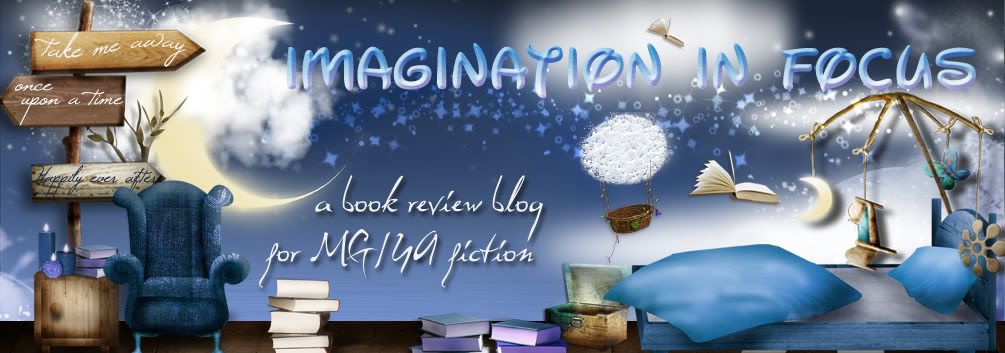 Time for another random post! I've been meaning to write this for awhile, but never got around to it until now :)
Time for another random post! I've been meaning to write this for awhile, but never got around to it until now :) This past semester I took "Religious and Literary Studies of C.S. Lewis," or as we 80 students called ourselves, the "Lewis Crew," and it has become one the best college experiences I've had. A class of eighty at my school is huge, and yet it was a homely feel. Anyway, we read pretty much every major book by this incredible author, and obviously my appreciation for him has skyrocketed. He was always the Narnia guy, but I didn't know that he wrote at least a book a year from 1931 until his death in 1963. Prolific!
He was a soldier, professor, theologian, husband, and storyteller - what a busy, fulfilling life! I didn't know, for example, that he married Joy Gresham, a divorcee, in a civil ceremony in order for her to legally live in England. Well, they ended up falling in love and they had a religious wedding ceremony the following year. Her death 1960 was the inspiration for A Grief Observed. What I loved most about my class, therefore, was that in addition to giving great insight into Lewis' life, it allowed me to learn about his works in greater detail.
When most people think of Lewis, they think of Narnia, probably. Well, he is also famous for his apologetic writing, and he is considered one of the greatest apologists of the 20th century, if not all-time. Yes, the Narnia books are amazing and deserve all the recognition they receive, but Lewis' talents extended far beyond Professor Kirke's wardrobe. He was a pioneer in the genre of science fiction with his Space Trilogy: Out of the Silent Planet, Perelandra, and That Hideous Strength. He wrote two primarily allegorical stories: The Great Divorce and The Screwtape Letters, which personally are my favorites!
Here are some of the books we read and studied, and (of course) my quick-takes on them. I don't know about your personal situations and beliefs, but I do want to showcase Lewis' other works and greatly encourage you all to check him out!
The Space Trilogy: Out of the Silent Planet, Perelandra, and That Hideous Strength
We went over these books first. It's cool because they were written in the 30s-40s, so as far as science fiction goes, they're classics! They are allegorical
 like the Narnia series, but this series is geared more towards adults, so the style is more mature. Perelandra especially deals with a Garden of Eden scenario: it is supposed to represent Earth as it should have been. The series follows a college professor named Ransom who makes various space travels over the course of the first two books. That Hideous Strength takes a different direction, as it is set on Earth entirely. It also features a wicked-awesome big bear named Mr. Bultitude :) Take THAT, Winnie the Pooh!
like the Narnia series, but this series is geared more towards adults, so the style is more mature. Perelandra especially deals with a Garden of Eden scenario: it is supposed to represent Earth as it should have been. The series follows a college professor named Ransom who makes various space travels over the course of the first two books. That Hideous Strength takes a different direction, as it is set on Earth entirely. It also features a wicked-awesome big bear named Mr. Bultitude :) Take THAT, Winnie the Pooh!Mere Christianity (1952, based on radio broadcasts given during WWII)

This was our first apologetic work, and I would strongly suggest reading this book first. Pretty much the book makes a case for the reality of the Christian faith, using the concept of universal morality. I recommend this book in particular to anyone who might be interested to know what an apologetic work sounds like. This is Lewis at his clearest, if that makes any sense. As the class progressed, his concepts get a little more advanced, and so this is definitely my favorite of his apologies, just because it's the easiest to understand. And his metaphors are so clever and amusing, it's very easy to follow along with what he's saying. Give this one a shot!
The Problem of Pain (1940)
The idea behind this book is "why do we have pain in our life?" or more specifically, "If God is supposed to be good, why does He allow suffering?" We had to give chapter presentations on this one, and of course, I had to do the "Hell" chapter. So if you read this book and get to the Hell chapter, you can think of me :P This is also one of my favorites, because even though it's a little more advanced than MC, it seeks to answer questions that seem to be asked a lot. The thing that I love about Lewis is that he always backs up his points. It's never this, "Oh, well I have all the answers and here they are!" You may not agree with his interpretation (and some of the times in this book, I didn't really see things the same way he does) but I understand where he's coming from. I guess what a lot of people can appreciate about Lewis is that he really tries to back up what he's saying.
 The Great Divorce (1945) & The Screwtape Letters
The Great Divorce (1945) & The Screwtape Letters These two blend fiction with apologetic nonfiction in that they are allegorical. Some people don't like allegory, but I eat it up like I eat up Skittles. It's just so clever. So these two are Lewis' allegorical works (or at least, the ones we covered in class). They are also my FAVORITE WORKS BY CS LEWIS EVER!!!
No, The Great Divorce is not about people getting a divorce (not gonna lie, that's what I was expecting it to be, haha). It's about a bus that takes people in Hell up to Heaven for a tour. The ghosts are promised by the spirits (who are not transparent like the ghosts are) that they can stay in Heaven if they desire it. This book specifically gave me goosebumps, I found it that thought-provoking. It really kind of freaked me out, too, when all of the passengers (ghosts) decided to return to the Grey City because it was familiar to them and they were terrified of change. I strongly recommend this one!
And the other one is The Screwtape Letters, which is about the closest thing to humor you will find in C.S. Lewis writing, unless you count the talking animals of Narnia. The funny thing about Screwtape is that while it deals with an incredibly serious subject, it's so funny, too. Screwtape is pretty funny. And yet there's something inexplicably dangerous and deviant about what he's saying. The Screwtape Letters is written in letter-format, as Screwtape, a senior devil, instructs his novice nephew Wormwood, how to successfully tempt a human soul. It's an incredibly clever book, too, because the whole thing is written by the bad guy. So you have to train yourself that everything "good" to him is supposed to be bad. I can't imagine how long it must have taken Lewis to write this! Even if you may disagree with Lewis' message, I'd encourage reading this book just to be able to say you read it, and just for curiosity's sake. It's pretty entertaining, too! And also, there's this new audio version read by Andy Serkis (who played Gollum in LOTR). THAT is awesome!!

The Four Loves
This is going to be a bad summary, because I was so confused by this book. I wouldn't read this one unless you just love C.S. Lewis and want to read all his works, because his other apologetic writing is less obscure and "deep" as this one.
A Grief Observed
With this book, you have the interesting situation of an author seeming to contradict his words from a previous book. Lewis wrote this as he was coping with the death of his wife, and the first half seems to negate all of the principles proposed by Lewis in The Problem of Pain. The second half, though, is much more uplifting, as Lewis moves beyond grief. It's really emotional, and a great read, particularly for anyone who has dealt with loss.
Letters to Malcolm (1964, published posthumously)
This book is not fiction, even though Malcolm is a fictitious character. Pretty much this is a "dear diary" book about customs in Lewis' Anglican church, with an emphasis on the aspect of prayer. This was the last book in our unit, and so we skimmed through it, but it is a fairly easy read, and if you ever had any questions or interest in basic religious practices, this would be a good book to read. :)
Did not read:
The Pilgrim's Regress (1933)
The Abolition of Man (1943)
Miracles (1947)
Surprised by Joy (1955)
Till We Have Faces (1956)
Clearly, Lewis was a busy, busy man! While Narnia will always be his most famous work, his talent and beautiful prose can also be found in several other monumental works. I have CS Lewis to thank for making an impact on my life: he's an inspiration not only as a writer but also as a person, and I'm glad I had the chance to learn more about his incredible works. I highly, highly recommend checking out some of his other non-Narnian books
"No book is really worth reading at the age of ten which is not equally – and often far more – worth reading at the age of fifty and beyond."














